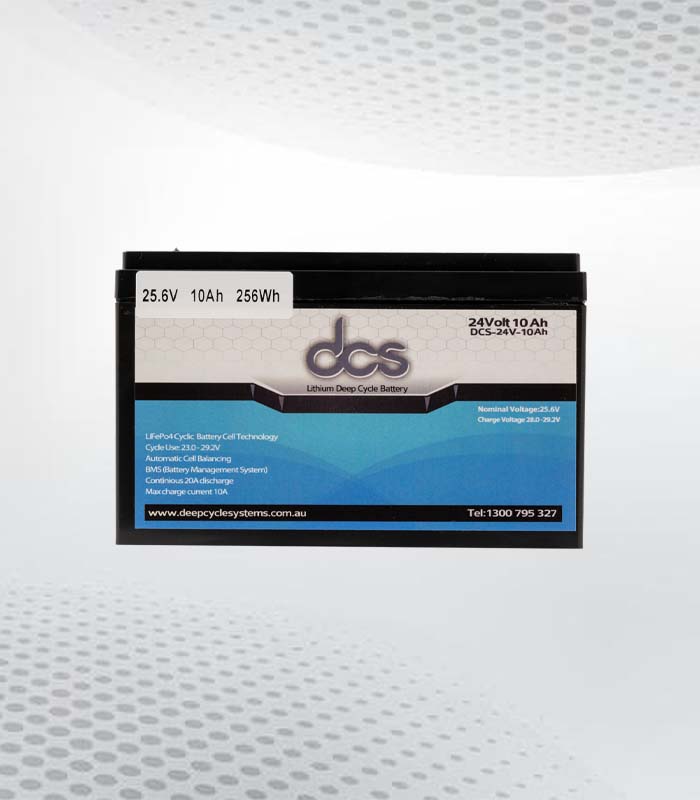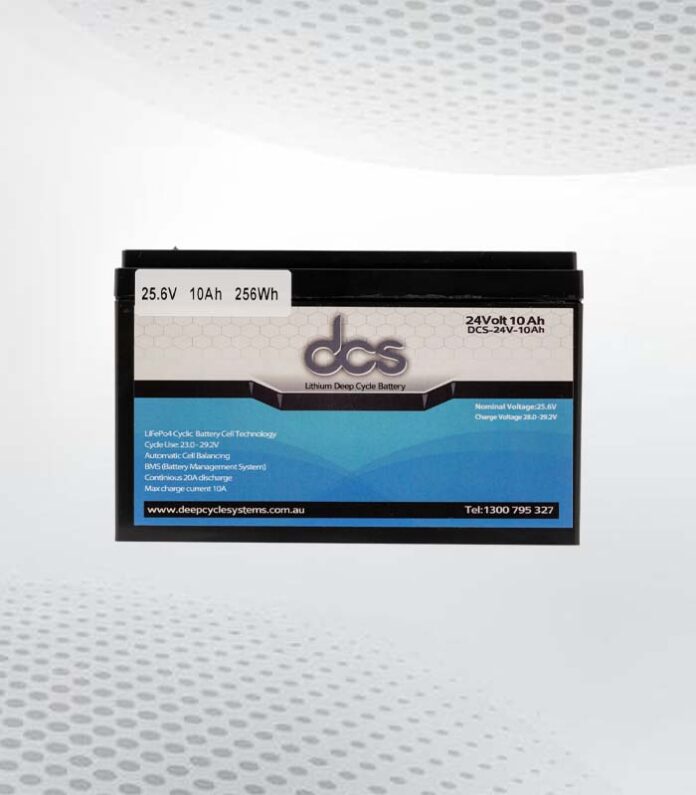In today’s fast-paced world, efficiency and reliability are key factors in any aspect of life, including starting your vehicle. That’s where lithium-cranking batteries come into play. These lightweight and dependable power sources are revolutionising the way we start our engines, providing instant power whenever we need it. Say goodbye to sluggish starts and hello to the future of automotive technology with lithium cranking batteries.
Understanding Lithium-Cranking Batteries
Lithium-cranking batteries stand at the forefront of automotive battery technology, designed to meet the specific demands of modern engine starting requirements. Unlike their lead-acid counterparts, these batteries employ lithium-ion technology, which significantly reduces weight, a critical factor in enhancing vehicle performance and efficiency. Their unique chemistry allows for a more compact and lightweight solution and contributes to an exceptionally longer service life, distinguishing them from traditional options. This extended lifespan is achieved through the batteries’ ability to endure a higher number of charge and discharge cycles without significant degradation in performance.
The Weight Advantage of Lithium Batteries
A significant benefit of adopting lithium-cranking batteries is their remarkable lightness compared to traditional lead-acid alternatives. This weight reduction is a crucial factor for various types of vehicles, particularly those where performance is paramount, such as in racing cars, motorcycles, and all-terrain vehicles (ATVs). These batteries contribute significantly to enhanced vehicle dynamics by minimising the overall mass, including acceleration, braking, and fuel efficiency.
Moreover, the ease of installation and the versatility offered by their compact size can open up new possibilities for weight distribution, allowing for improved handling and responsiveness. For enthusiasts and professionals alike, the move towards lighter lithium-cranking batteries can thus represent a pivotal step towards achieving superior performance metrics.
Additionally, for everyday users, the benefits extend beyond mere performance enhancements; the reduced strain on vehicle components may translate into lower maintenance costs over time. This weight advantage, inherent in lithium technology, underscores the transition towards more agile and efficient automotive solutions, marking a departure from the heavier, less efficient battery technologies of the past.
Instant Power When You Need It Most
Embarking on a journey with lithium-cranking batteries transforms the experience of engine ignition into a seamless endeavour. These batteries excel in providing a swift surge of power, eliminating the dreaded wait and uncertainty associated with traditional batteries, particularly in challenging conditions. The prowess of lithium technology shines when faced with the harsh cold or after periods of vehicle dormancy, where lead-acid batteries might falter. The secret lies in the lithium battery’s ability to maintain a higher state of charge, ensuring that a robust burst of energy is readily available at the moment of ignition.
Contrary to the slower response of older battery types under adverse conditions, lithium-cranking batteries stand out for their exceptional performance. Their capacity to deliver immediate power enhances vehicle operation’s convenience and contributes to a stress-free start regardless of the environment. This immediate energy discharge is crucial during cold starts, where the battery’s efficiency can significantly impact the engine’s ability to turn over.
The technology underpinning these batteries also caters to the demands of modern vehicles, which often require more power for initial engine activation. With the rapid response and high-current delivery of lithium-cranking batteries, drivers can expect a consistent, reliable start time after time. This efficiency and reliability redefine the standards of automotive power, underscoring the shift towards more responsive and user-centric vehicle technologies.
The durability of Lithium Starter Batteries
Lithium starter batteries are designed to endure the daily demands of vehicles and bring an unparalleled level of robustness to the table. These powerhouses are engineered to navigate diverse environmental challenges, from biting cold to scorching heat, without faltering. Their build quality ensures they remain unaffected by the frequent vibrations and jolts associated with driving on uneven terrains, making them a steadfast ally for off-road adventurers and city drivers.
The inherent resilience of lithium technology against temperature extremes sets these batteries apart. Where traditional batteries may succumb to the pressures of severe weather, lithium-cranking batteries maintain their composure, offering consistent performance. This resilience is crucial for those who venture into environments where the mercury dips well below freezing or soars to heights that challenge the limits of conventional battery solutions.
Aside from their environmental endurance, these batteries are characterised by an extraordinary resistance to common battery ailments. The dreaded degradation that plagues many battery types leading to diminished capacity and a shortened life cycle, is significantly mitigated in lithium-cranking batteries. This is thanks to their superior chemical composition and state-of-the-art design, which together ensure sustained peak performance over an extended period.
Their capacity to withstand such a wide spectrum of challenges without a drop in performance or reliability underlines the exceptional durability of lithium-ranking batteries. This durability ensures a smoother, more reliable start with every ignition and provides peace of mind for vehicle owners, knowing their battery is built to last.
Dependability in All Weather Conditions
Lithium-cranking batteries stand out for their exceptional reliability across a spectrum of climatic challenges. Whether the vehicle is exposed to the freezing temperatures of a harsh winter morning or the unyielding heat of a summer day, these batteries maintain their efficiency, ensuring the engine springs to life with the first turn of the key. Unlike traditional lead-acid batteries, which can falter under extreme weather, lithium options are engineered with a resilience that guarantees performance regardless of the thermometer reading.
This steadfast operation in varied conditions is a testament to their superior design and the advanced materials used in their construction, which are less prone to the effects of temperature fluctuations. For drivers, this means the uncertainty of whether the vehicle will start in extreme weather conditions is virtually eliminated. The robust nature of lithium-cranking batteries underlines their role as a reliable energy source for cars, assuring that they can tackle any weather challenge. This dependability is crucial for those who rely on their cars for daily commutes or adventurous explorations, ensuring that neither snow nor rain nor heat halts their journey.
 The Economic Sense of Switching to 12 Volt Lithium Battery
The Economic Sense of Switching to 12 Volt Lithium Battery
The upfront cost of acquiring a 12 volt lithium battery may initially seem steep when compared to conventional lead-acid batteries. However, this initial investment pays dividends over the long term, making it a financially savvy choice for vehicle owners. One of the principal economic advantages of lithium-cranking batteries lies in their extended operational life. These batteries consistently outlast their lead-acid counterparts, often significantly, due to their superior ability to handle deep discharge cycles without suffering from performance degradation. This longevity means that the frequency of battery replacements is dramatically reduced, resulting in considerable savings over time.
Furthermore, the efficiency gains associated with lithium-cranking batteries contribute to an overall reduction in vehicle running costs. Their lightweight nature plays a pivotal role in improving fuel economy, a factor that becomes increasingly valuable over the vehicle’s lifespan. Additionally, the minimal maintenance requirements of lithium batteries further compound their cost-effectiveness. Unlike lead-acid batteries, which may need regular checks and maintenance to ensure peak performance, lithium batteries require little to no upkeep, saving on potential maintenance expenses.
While the initial transition to a 12-volt lithium battery involves a higher upfront expenditure, the aggregate cost savings realised through extended battery life, reduced maintenance, and improved fuel efficiency present a compelling economic argument. Vehicle owners who opt for lithium-cranking batteries not only invest in superior starting power and reliability but also in a solution that promises significant financial advantages in the long run.
Making the Switch: What You Need to Know
Transitioning to lithium-cranking batteries represents a forward leap in vehicle performance and efficiency. However, ensuring a smooth upgrade requires attention to several key factors. Firstly, compatibility is paramount; selecting a battery that aligns with your vehicle’s specific needs and electrical requirements is essential. This ensures seamless integration and optimises the performance benefits of the lithium battery.
Another crucial consideration is the battery’s physical dimensions and weight. Although lithium-cranking batteries are generally more compact and lighter than traditional options, verifying that the chosen model fits within your vehicle’s designated battery space is vital. This not only facilitates easy installation but also aids in maintaining proper weight distribution and balance in your car, which can influence handling and performance.
Furthermore, adhering to the manufacturer’s installation guidelines is a must. These instructions are designed to help you safely and effectively install your new battery, preventing potential issues related to incorrect fitting or connections. It’s also beneficial to familiarise yourself with the maintenance advice provided by the battery manufacturer, although lithium batteries typically require minimal upkeep compared to lead-acid types.
Long-Lasting Lithium Batteries: A Sustainable Choice
Opting for lithium-cranking batteries is a step forward towards more sustainable vehicular technology. Their extended operational lifespan significantly curtails the need for frequent replacements, contributing to a reduction in waste and the conservation of resources. This aspect is particularly vital in today’s context, where the environmental impact of discarded batteries is a growing concern. The manufacturing and disposal processes of batteries entail the consumption of materials and energy and the production of waste. By enhancing the longevity of batteries, lithium-cranking technologies offer a more eco-friendly alternative, reducing the ecological footprint associated with battery use over a vehicle’s lifetime.
By adopting lithium-cranking batteries, vehicle owners invest in superior performance and reliability and support the shift towards more sustainable automotive solutions. This choice reflects a commitment to reducing environmental harm while benefiting from these batteries’ technological advancements.
Conclusion
In wrapping up, it’s evident that the advent of lithium-cranking batteries is setting a new benchmark in vehicle start-up efficiency and reliability. These units, notable for their reduced mass and steadfast performance, herald a significant advancement in automotive power sources. Their enduring lifespan and the compelling economic rationale for their adoption underscore a transformative impact on both the individual user’s experience and the broader automotive industry. As we look towards an era of cleaner, more efficient vehicle technologies, the transition to lithium-cranking batteries represents a pivotal move forward. Embrace this technology notbenefit from its immediate advantages and participate in shaping the future of environmentally responsible motoring.
FAQs
What makes lithium-cranking batteries superior to lead-acid batteries?
Lithium-cranking batteries offer a lighter, more efficient alternative, providing higher power and longer lifespan due to their advanced lithium-ion technology. This makes them more reliable, especially in extreme weather conditions.
Can I use a lithium-cranking battery with any vehicle?
Generally, yes, but ensure the battery you choose is compatible with your vehicle’s specifications to optimise performance benefits and ensure seamless integration.
How long do lithium-cranking batteries last?
While the lifespan can vary based on usage and maintenance, lithium-cranking batteries typically outlive their lead-acid counterparts by a considerable margin, often offering years of reliable service.
Is the initial higher cost of a lithium-cranking battery worth it?
The upfront cost is offset by the battery’s extended lifespan, reduced maintenance needs, and potential fuel savings due to its lightweight nature, making it a cost-effective choice in the long run.
Are lithium-cranking batteries environmentally friendly?
Yes, their long operational life, combined with improved fuel efficiency, contributes to reduced waste and lower greenhouse gas emissions, marking a step towards more sustainable automotive solutions.
| Related Business Listings |
| Contact Directory |
| Local Business Profiles |
